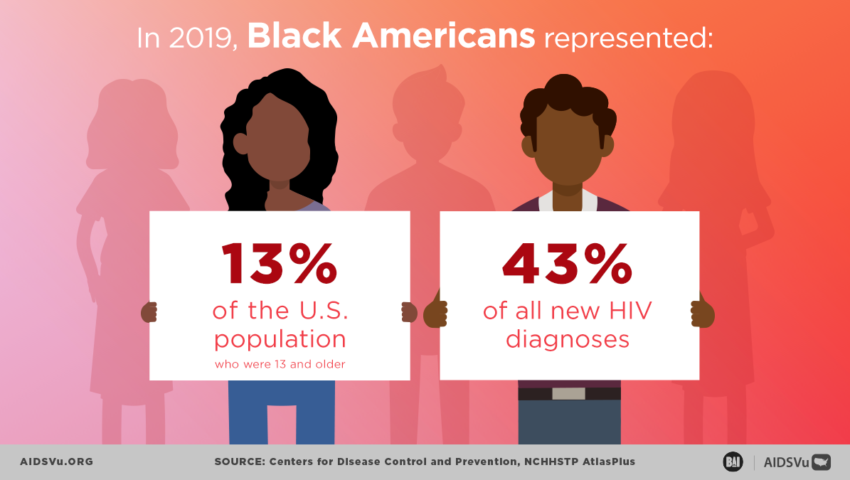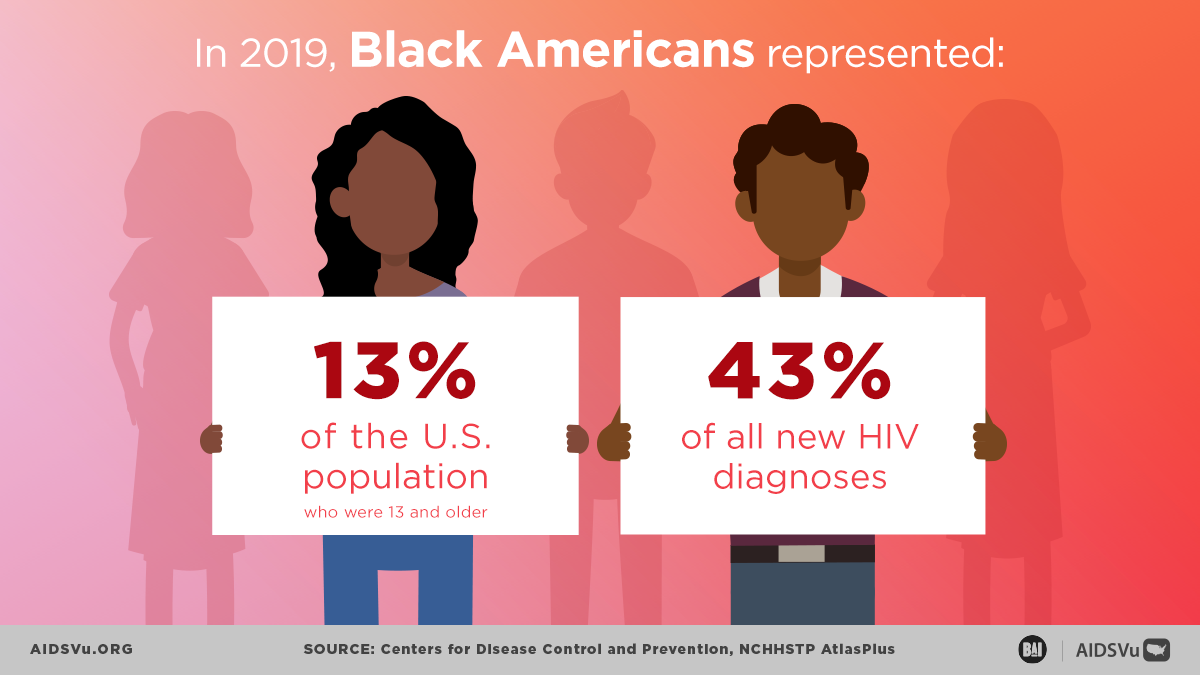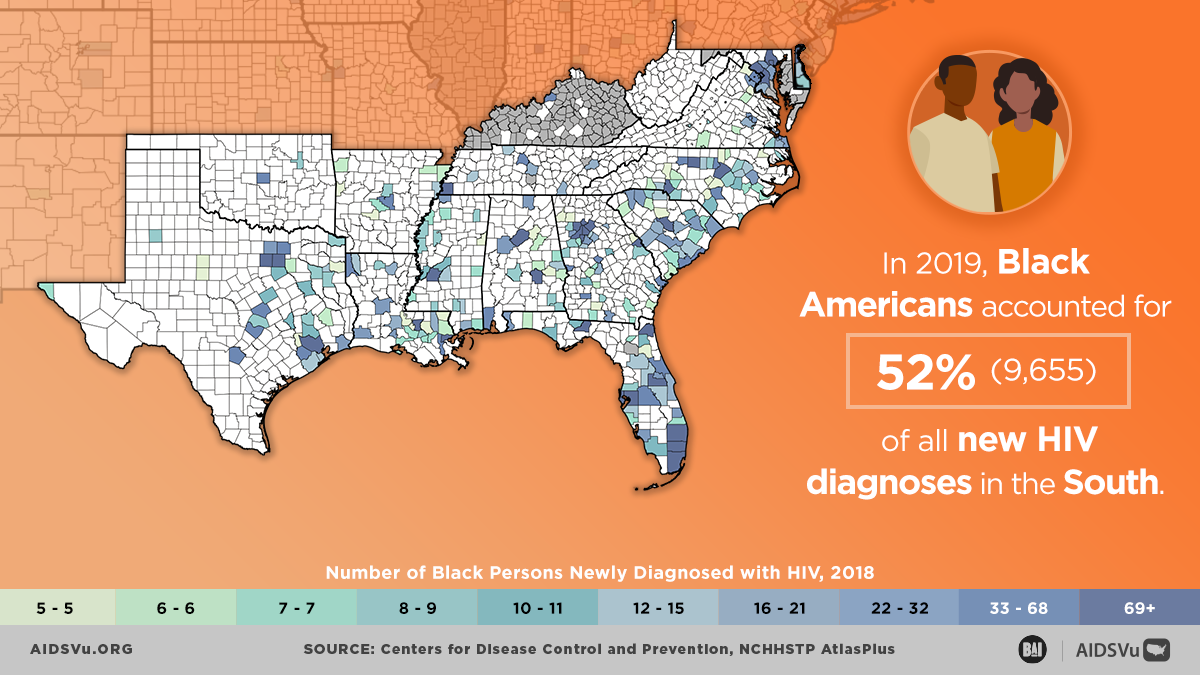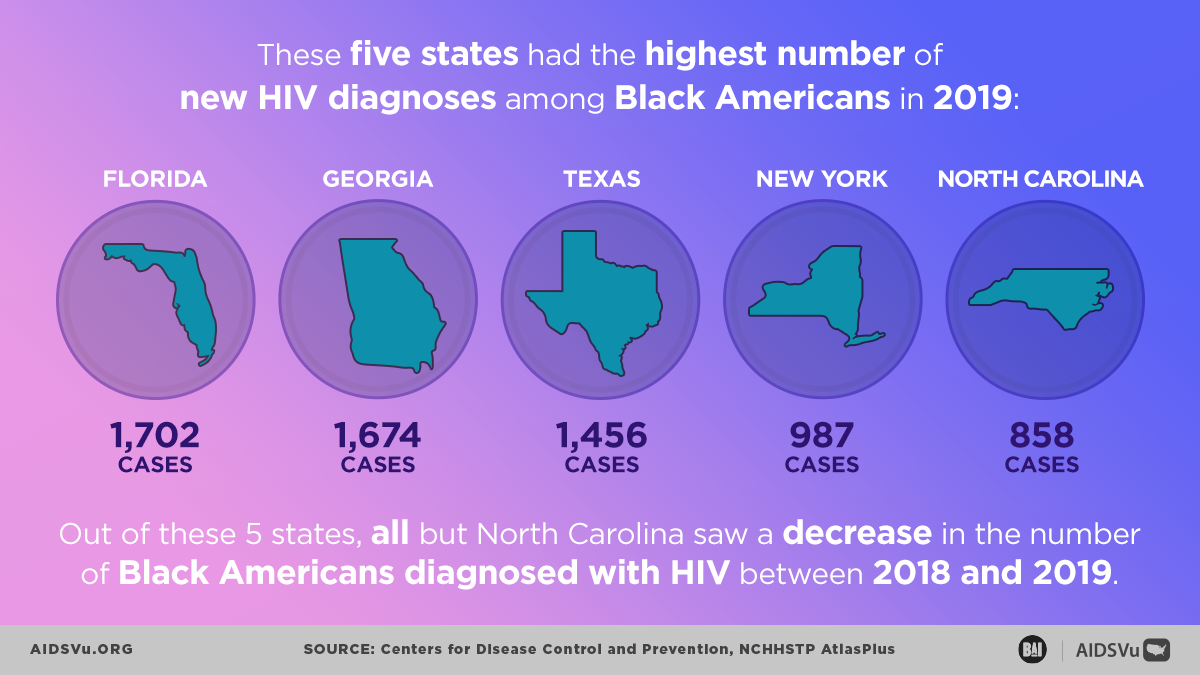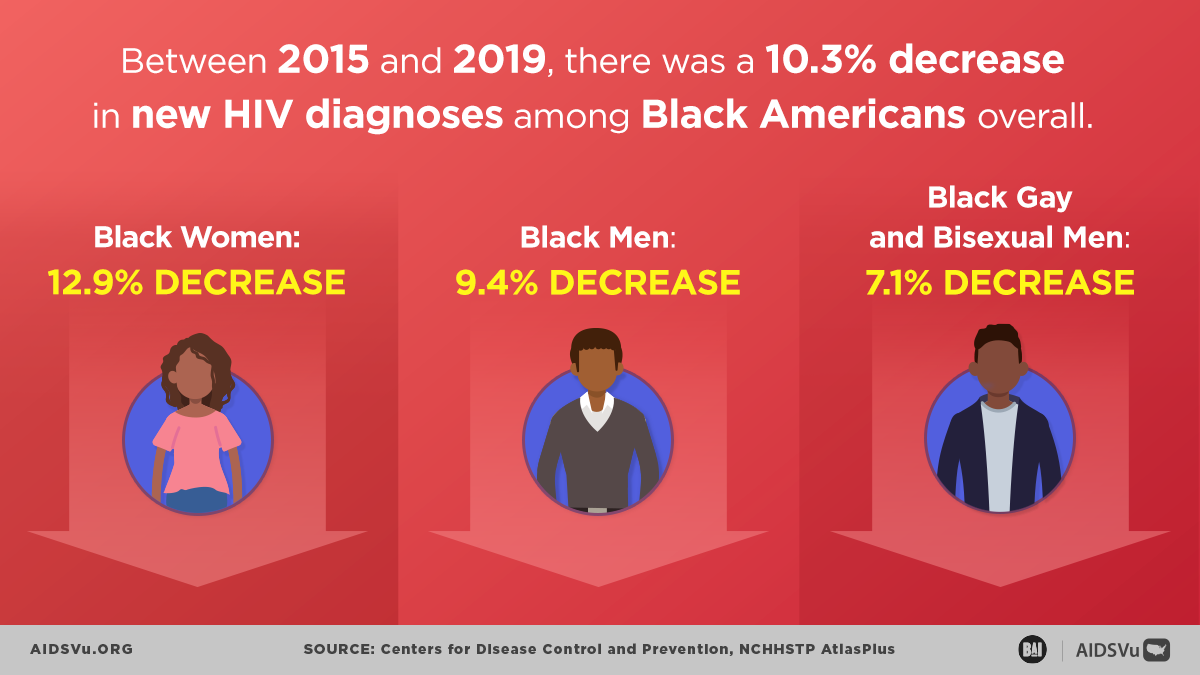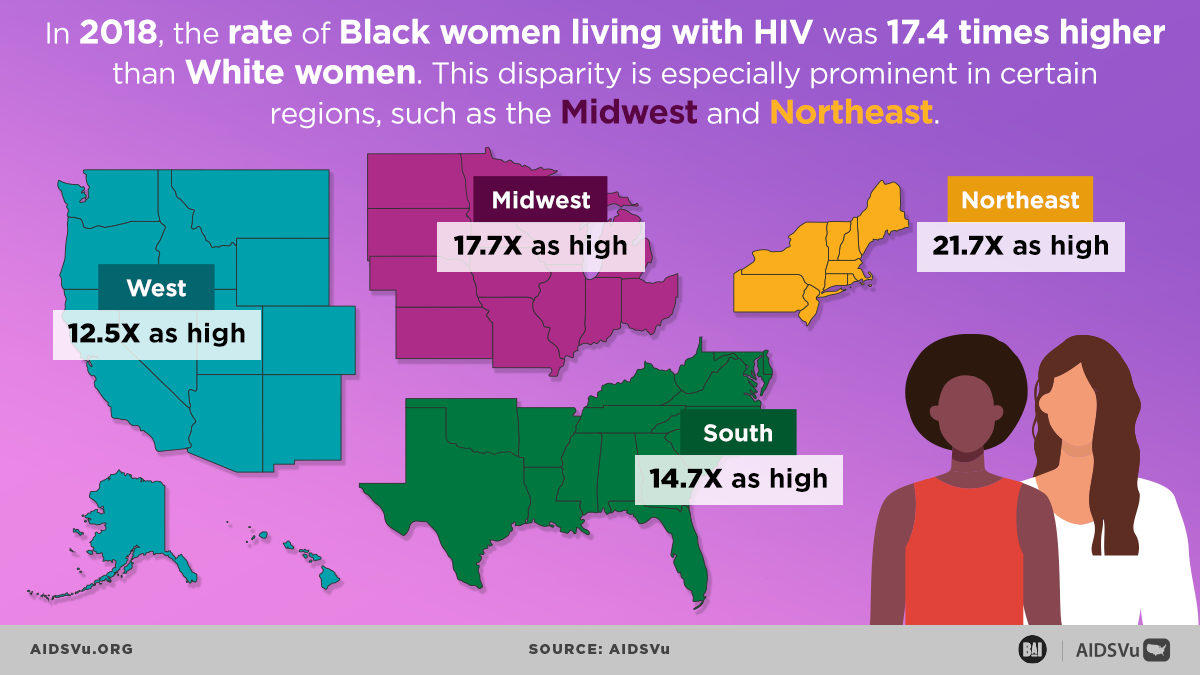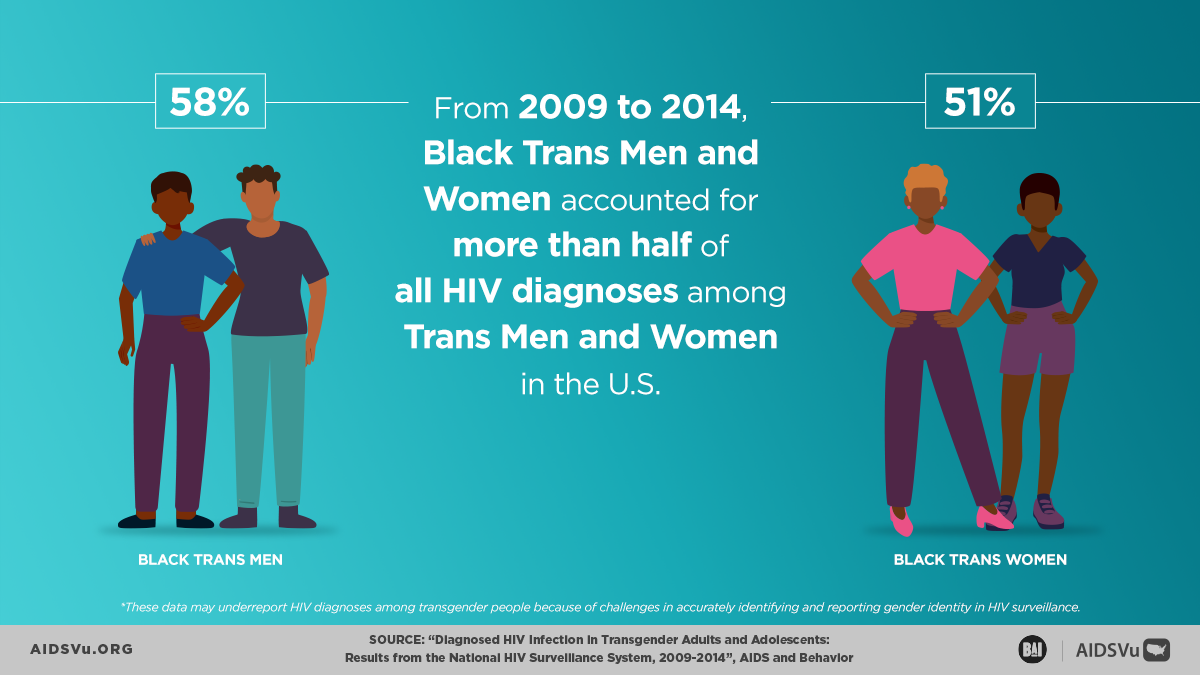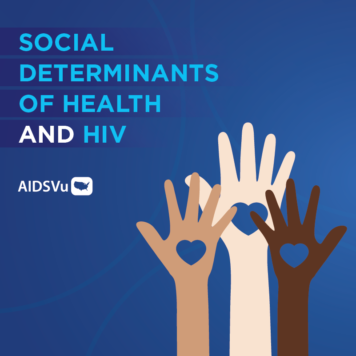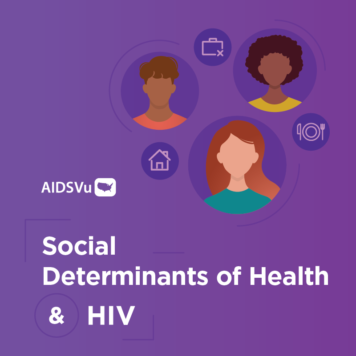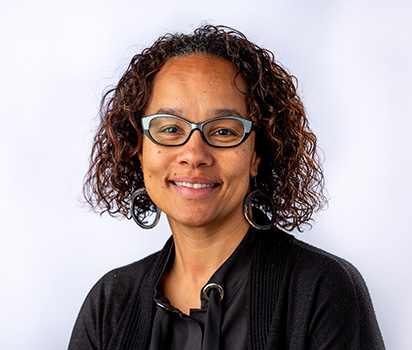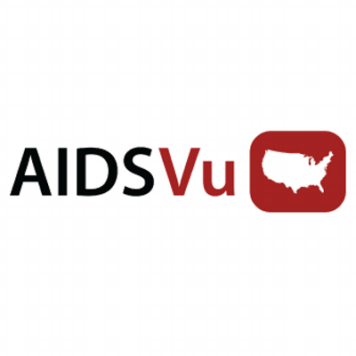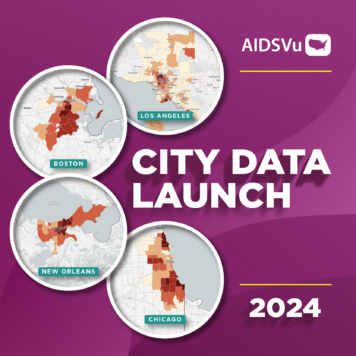On February 7, AIDSVu recognizes National Black HIV/AIDS Awareness Day (NBHAAD), a day dedicated to raising awareness of the significant and disproportionate impact of HIV on Black Americans and the importance of increasing access to HIV education, testing, treatment, and prevention services. On this day, and throughout the year, it is important to acknowledge and address the social and structural determinants of health that drive the HIV-related health disparities experienced by Black communities.
Between 2015 and 2019, there was a 10% decrease in new annual HIV diagnoses among Black Americans. Although this decrease shows an optimistic trend, Black Americans still make up a disproportionate number of new HIV diagnoses in many regions of the U.S. For example, Black Americans accounted for 52% (9,655 cases) of all new HIV diagnoses in the South in 2019. Among the top five states with the highest number of new HIV diagnoses among Black Americans, four are also located in the South: Florida, Georgia, Texas, and North Carolina.
Black Transgender Men and Women continue to be disproportionately impacted by HIV, but the data has often underrepresented that impact due to challenges with accurate and inclusive data collection. According to the CDC, Black Trans Men and Women both accounted for more than half of all people newly diagnosed with HIV among transgender people from 2009 to 2014.
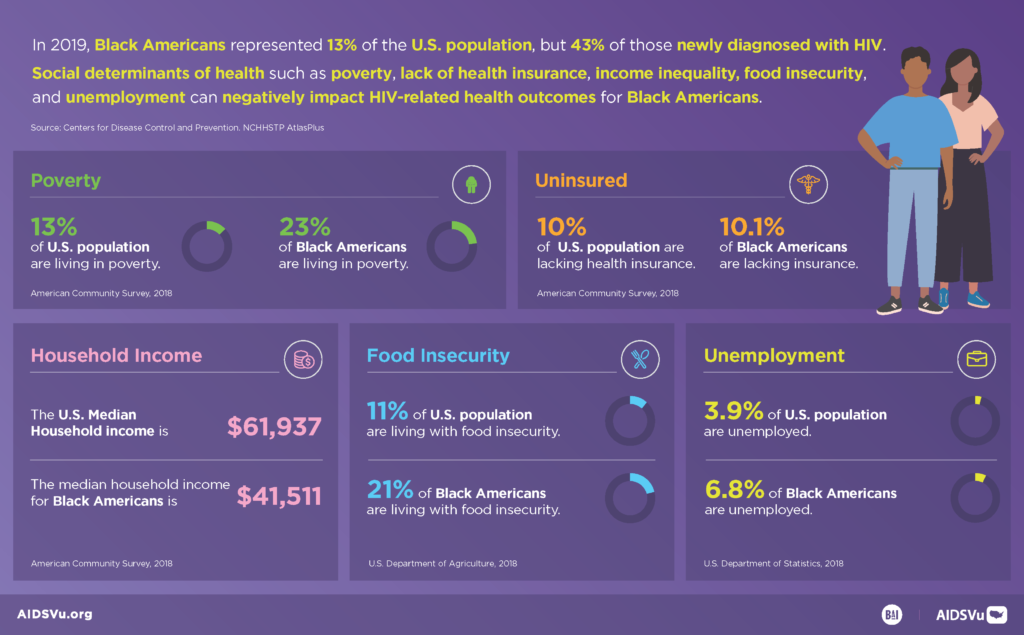 NBHAAD is an opportunity to advance a national conversation about the way social determinants of health and racial inequities have resulted in a disproportionate burden of HIV in Black communities. For example:
NBHAAD is an opportunity to advance a national conversation about the way social determinants of health and racial inequities have resulted in a disproportionate burden of HIV in Black communities. For example:
- In 2018, 23% of Black Americans were living in poverty, compared to 13% of the overall U.S. population.
- In the same year, 21% of Black Americans were experiencing food insecurity, compared to 11% of the overall U.S. population.
This NBHAAD, we must recognize and address these deep, systemic inequities to work towards ending the HIV epidemic among Black Americans.
To learn more about how the HIV epidemic impacts Black Americans, explore these AIDSVu resources:
- Visualize HIV data stratified by race/ethnicity on AIDSVu’s interactive map.
- Explore our local data profiles to learn about HIV/AIDS in your area.
- Find available HIV testing and care services near you with AIDSVu’s service locators.
- View expert-led Q&A blogs to deepen your understanding of HIV/AIDS in Black communities.
- Share our infographics with your networks to raise awareness.

